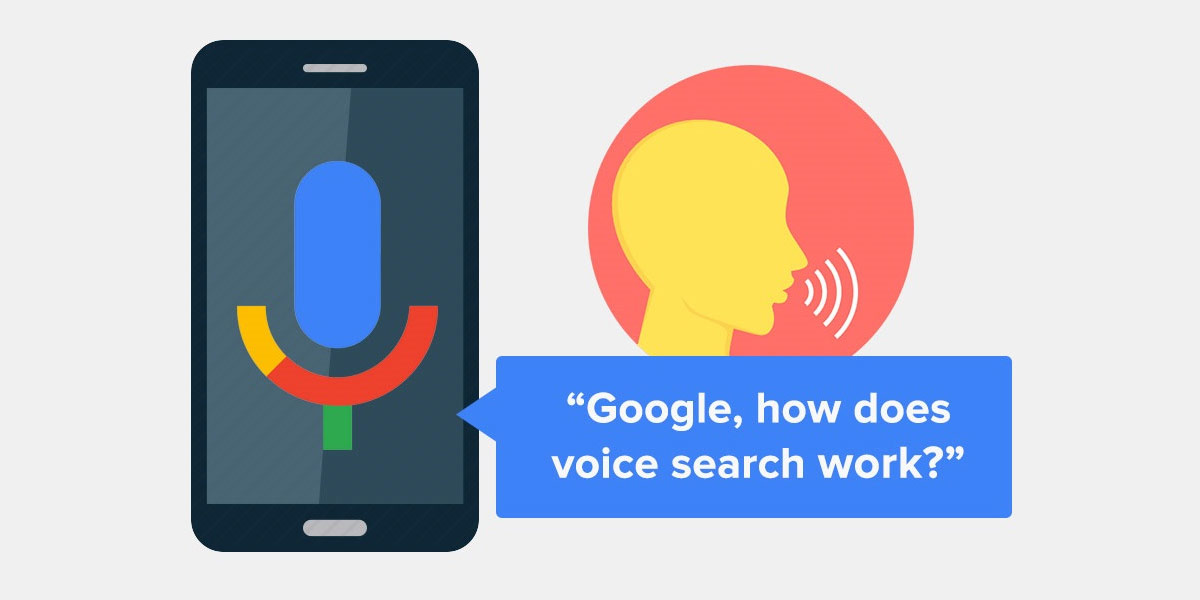
Over the past few years, there has been a significant increase in the usage of digital assistants and smart speakers, such as Amazon’s Alexa, Google Assistant, and Apple’s Siri. As a result, voice search has become a vital aspect of Search Engine Optimization (SEO) for businesses and website owners alike. With voice search becoming more prevalent, it is expected to account for 55% of all searches by 2022, which highlights the importance of optimizing your website for search by voice as we move into 2023.

Introduction
Why Voice Search Optimization Matters
Before we dive into the specifics of search by voice optimization, it’s important to understand why it matters in the first place. There are several reasons why voice search optimization should be a key priority for any website owner:
Increased Adoption of Smart Speakers and Digital Assistants
With the rise of devices like Amazon Echo, Google Home, and Apple HomePod, smart speakers have become ubiquitous in many households. It’s estimated that 31% of U.S. households own at least one smart speaker. And as the adoption of smart speakers and digital assistants continues to grow, so too will the importance of voice search optimization.
Convenience and Ease of Use
One of the main reasons people turn to voice search is its convenience and ease of use. With voice search, users can get the information they need without typing out a query on their phone or computer. And as our lives become increasingly busy and time becomes more precious, this convenience factor will only become more important.
Improved Search Accuracy
In many cases, search by voice can provide more accurate results than traditional text-based search. This is because voice search allows users to be more specific and conversational in their queries, which can help search engines better understand their intent.

Why Search by Voice Optimization Matters
How to Optimize Your Website for Voice Search
Now that we’ve established why search by voice optimization is important, let’s explore some of the strategies and tactics you can use to optimize your website for voice search.
1. Focus on Long-Tail Keywords
When it comes to voice search, long-tail keywords are key. That’s because searches by voice queries tend to be longer and more conversational. For example, while someone might type “best pizza place NYC” into a search engine, they’re more likely to say “what’s the best pizza place in NYC?” when searching by voice. By focusing on long-tail keywords, you can better align your content with the types of queries people are making when using search by voice.
2. Create Conversational Content
In addition to using long-tail keywords, it’s also important to create conversational content that’s easy to read and understand. When optimizing your content for voice search, keep in mind that users are often asking questions and looking for quick answers. By creating content that’s straightforward and conversational in tone, you can increase the likelihood that your website will appear in voice search results.
3. Make Sure Your Website is Mobile-Friendly
Since many voice searches are conducted on mobile devices, it’s important to ensure that your website is mobile-friendly. This means making sure that your website is easy to navigate on a small screen, that it loads quickly, and that it’s optimized for touch-based interactions.
4. Use Structured Data
Structured data, also known as schema markup, can help search engines better understand the content on your website. By using structured data to mark up your content, you can increase the chances that your website will appear in featured snippets and other rich results that are often read aloud by digital assistants.
5. Optimize for Local Search
Local search is especially important for businesses that rely on foot traffic. When optimizing your website for voice search, it’s important to focus on local SEO strategies, such as claiming your Google My Business listing, using local keywords, and including your business address and phone number on your website.
6. Use Natural Language Processing (NLP)
Natural Language Processing (NLP) is a type of artificial intelligence that helps machines understand human language. By using NLP techniques in your content, you can improve your website’s voice search performance. For example, you can use NLP to better understand the intent behind search by voice queries and create content that’s tailored to those specific needs.
7. Optimize for Featured Snippets
Featured snippets are the short, concise answers that often appear at the top of search results. These snippets are especially important for voice search, as digital assistants will often read them aloud to users. By optimizing your content for featured snippets, you can increase the likelihood that your website will appear in search by voice results.
8. Speed Up Your Website
Website speed is an important factor in both traditional and voice searches. A slow-loading website can result in a poor user experience and lower search engine rankings. To ensure that your website loads quickly, consider using a content delivery network (CDN), compressing your images, and minimizing the use of JavaScript and other resource-intensive elements.
9. Provide Clear Answers
When optimizing your content for voice search, it’s important to provide clear, concise answers to common questions. This can help increase the likelihood that your website will appear in featured snippets and other rich results that are often read aloud by digital assistants.
10. Use Social Media to Boost Visibility
Social media can be a powerful tool for boosting your website’s visibility and improving its search by voice performance. By sharing your content on social media platforms like Twitter, Facebook, and LinkedIn, you can increase the likelihood that your content will be shared and linked to by others, which can help improve your search engine rankings.

How to Optimize Your Website for Search by Voice
Conclusion
Voice search is rapidly becoming an integral part of the way we search for information online. By optimizing your website for search by voice, you can improve your visibility, reach new audiences, and provide a better user experience for your visitors. By following the tips and strategies outlined in this article, you can ensure that your website is well-positioned to succeed in the era of search by voice.
FAQs
What is voice search?
Voice search is a type of search that allows users to conduct a search query using their voice, rather than typing out a query on a keyboard.
How does voice search differ from traditional text-based search?
Search by voice queries tends to be longer and more conversational, while traditional text-based queries are typically shorter and more to the point.
Why is search by voice optimization important?
Search by voice is predicted to account for 55% of all searches by 2022, making it an increasingly important component of SEO.
What are some tips for optimizing for voice search?
Some tips for optimizing for voice search include focusing on long-tail keywords, creating conversational content, optimizing for local search, and using structured data.
How can social media help improve your website’s voice search performance?
By sharing your content on social media platforms, you can increase the likelihood that your content will be shared and linked to by others, which can help improve your search engine rankings and visibility in search by voice results.
How does voice search impact SEO?
Voice search has a significant impact on SEO, as it changes the way users search for information and the way search engines interpret and rank content.
Can search by voice be used for e-commerce?
Yes, search by voice can be used for e-commerce, and it’s becoming increasingly popular among consumers who want to make hands-free purchases.
What are some challenges in optimizing for voice search?
Some challenges in optimizing for voice search include understanding user intent, creating content that’s conversational and engaging, and optimizing for natural language processing.
How can I track my website’s performance in voice search?
You can track your website’s performance in search by voice using tools like Google Analytics, SEMrush, and Ahrefs.
What are some future trends in voice search?
Some future trends in search by voice include the integration of search by voice with other emerging technologies like augmented reality and virtual reality, as well as the continued development of more advanced natural language processing capabilities.

With over two decades of web design and development expertise, I craft bespoke WordPress solutions at FallingBrick, delivering visually striking, high-performing websites optimised for user experience and SEO.




